Gordon Strachan: 'I'm paid to handle stress that comes with Scotland job'
- Published
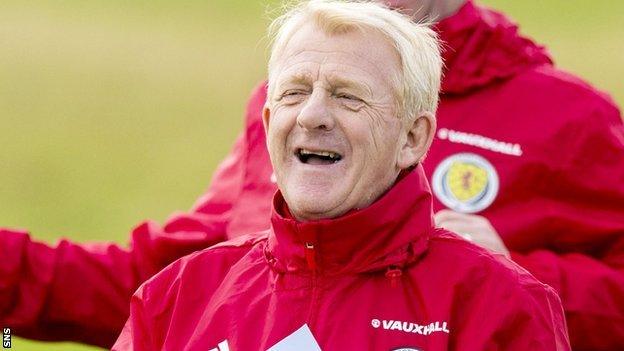
Gordon Strachan says if he could he would continue to manage Scotland "for the rest of my life"
Qualifying campaigns for major tournaments have often seemed like a form of slow torture for Scotland fans for the best part of two decades.
The national team are once again bidding to qualify for a first tournament finals since the 1998 World Cup in France.
They got their campaign for the 2018 World Cup up and running with victory in their opening qualifier away to Malta.
On Saturday they face Lithuania at Hampden before a trip to face Slovakia on Tuesday.
Ahead of those crucial encounters, BBC Scotland caught up with the Scotland manager Gordon Strachan to get an insight into the job which can influence the mood of the nation like few others.
Is Scotland the dream job?
"I suppose Real Madrid would be the dream job!
"I never set out to be the Scotland manager, it just so happens that my career has ended up here and I've got to say I'm very, very lucky.
"I wish I could take this group of players and take them to a club side and I think they'd be a fantastic club side.
"What a group of players to work with, there's absolutely never any problems with them. It really is a joy to work with them."
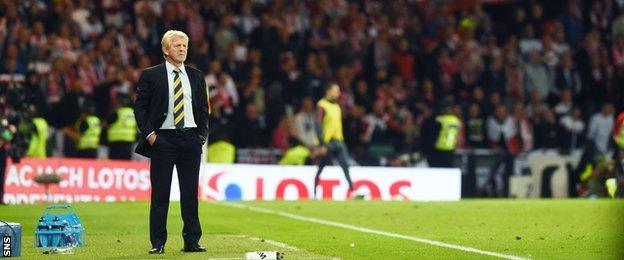
Strachan says he never considered quitting the Scotland job after the failure to qualify for Euro 2016
Handling criticism
"I don't get paid for what I do in the coaching field and being with the players, talking to them and enjoying their company. I really get paid for the stress that goes with it.
"I have to keep myself to the reality that the stress is just to win games of football. I don't get involved in the fantasy stress. I just have to qualify for the World Cup - that's the real stress.
"There's other stress which you can put on yourself if you listen to everybody who has an opinion. I understand that, I've not got a problem with that.
"What I do to protect myself and to protect my family is to make sure I'm in a good mood because it can affect you. It can affect the people round about me if I feel we've been unjustly treated, it can affect how I train with the players, how I treat the players, how I treat the staff."
Tackling the media
"It's a battlefield out there. People don't realise that's it's usually 32 versus one, and the 32 are looking for a headline and I've got to protect my players at all times. They're the ones you have to look after more than anything else. As a manager you need their respect.
"You don't need the respect - you would like it - from fans and journalists and anybody else, but you need that respect your players.
"It's a bit of a game. Sometimes you guys (the media) win and you get that headline that you want and it makes me feel terrible for two days, or I win and you get nothing. I hope at the end of the day we put our hands up and go, 'right, that was a good fight, let's get on with it and I'll see you next week for the next round'.
"I try my best to make it different. After 45 years doing this, you'll find it hard to ask original questions, we all find it hard, and to get original answers is hard.
"I sometimes go on a tangent somewhere because it entertains me and keeps me from answering the question and it's a bit different."
Did you consider quitting after missing out on Euro 2016?
"If I could have the rest of my life doing this it's great, but it's results-based.
"I was a bit annoyed with myself taking on that extra game against France. That was a misjudgement by me. I was down that I'd kept the players another week when they could have been with their families.
"There was never going to be any doubts (about staying on). Not at all. Far from it."
- Published6 October 2016
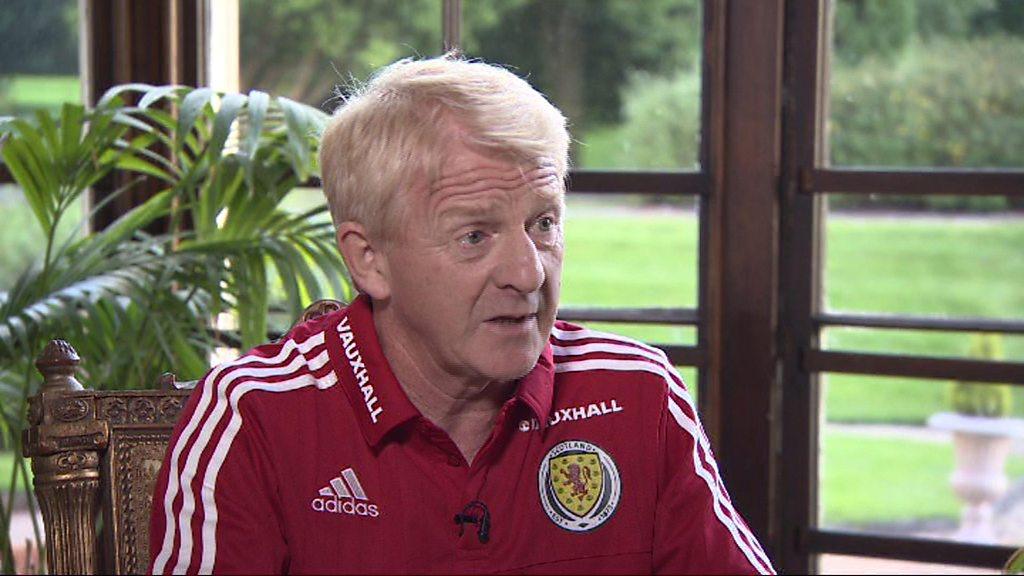
- Published6 October 2016
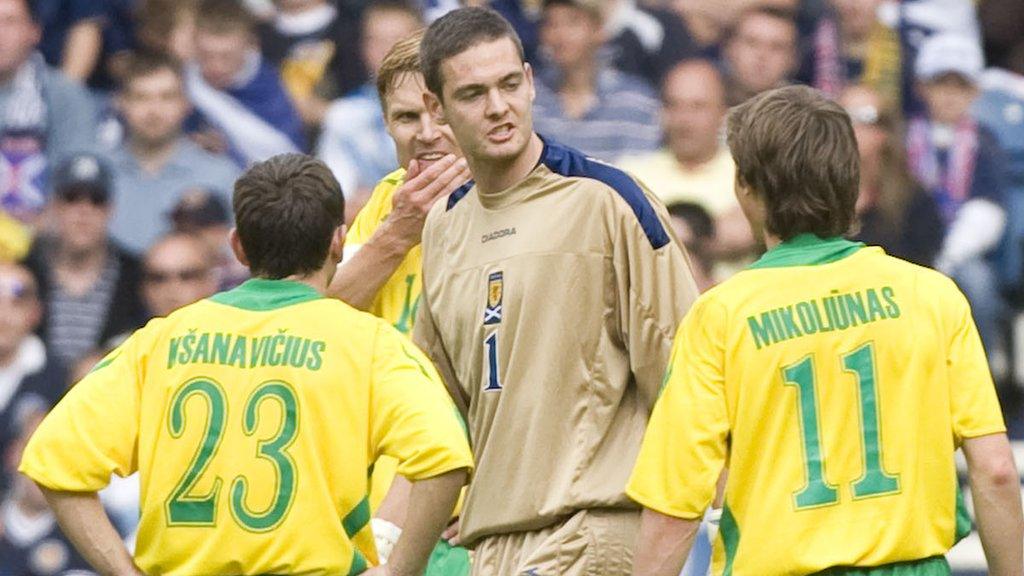
- Published5 October 2016
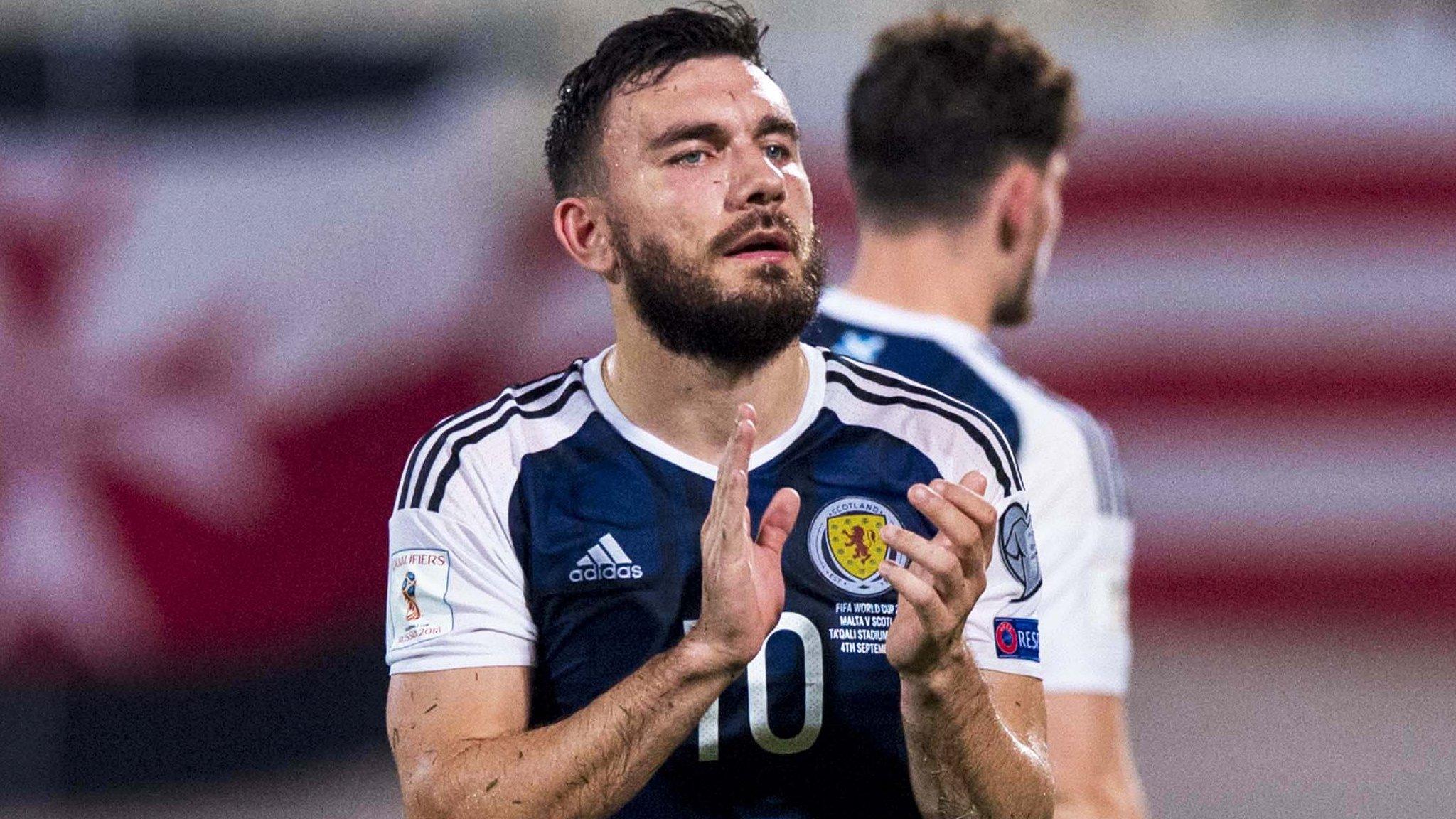
- Published14 January 2018
- Published7 June 2019
